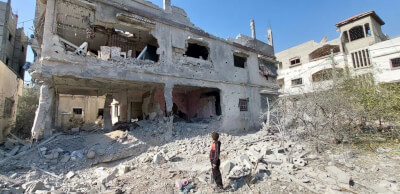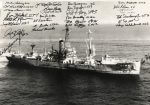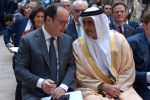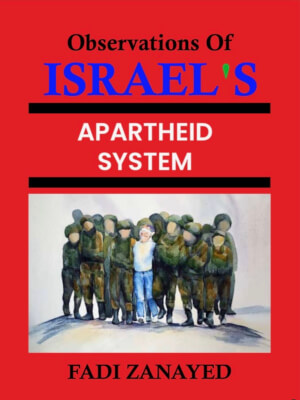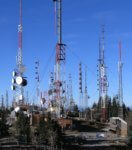Anger and emotion following the terrorist attacks after Sept. 11, 2001 prevented most Americans from thinking with reason and common sense back then. But as time goes on, more and more Americans are recognizing that our failure to act responsibly after 9/11 has helped create a much more dangerous world, not a safer one. We will never forget 911, but will we ever learn?
By Ray Hanania
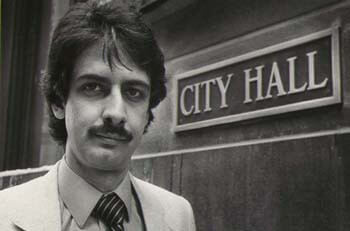
covering Chicago
City Hall
(1976-1992)
It was obvious right after Sept. 11, 2001 that Saddam Hussein, the brutal Iraqi dictator, had nothing to do with the terrorism that struck our nation that day.
It should have also been obvious that politicians and government officials, who were all caught off guard despite clear warnings of impending attacks using commercial jet airlines, wanted to exploit our anger to protect themselves.
Hate is a powerful tool in elections and American politics. Hate based on racism and fear, and religious differences that should remain outside of American government but do not, have manipulated mainstream Americans into believing things that just simply are not true.
Ironically, the same factors have influenced those who saw with clarity the lack of evidence implicating Saddam Hussein, Iraq and that the terrorism was being used by an unprepared administration, also caused them to react in a less than reasoned manner, with many on the defensive turning to conspiracies to respond to the false claims of WMDs, Iraqi ties to al-Qaeda and the growing animosity and racism against American Arabs and American Muslims.

The truth is, the years after Sept. 11, 2001 were a mess when it came to common sense, reason, truth, accuracy and responding in a way that protected not exposed our nation to more violence and terrorism.
Everyone had a personal agenda, from President George W. Bush, who was warned in memos that extremists were considering plots to use hijacked commercial jet-liners as weapons but ignored those warnings to focus on other priorities, to Vice President Dick Cheney, who had a personal interest in directing a broader war that went beyond simply targeting terrorist leader Osama Bin Laden in Afghanistan. Cheney had a financial interest in Halliburton, his company which eventually became the leading supplier of military support, weapons, services and materials. The contracts to Halliburton went into the billions.
And that’s not to mention the cronies around Cheney who were brought in to find their own ways to profit from the terrorism by dragging Iraq into the equation.
By itself, attacking Afghanistan was not a real major war. Iraq, on the other hand, was. American attacked Afghanistan, targeting Bin Laden and his Islamic religious fanatic hosts, the Taliban. It didn’t require much and we clearly would have quickly defeated the terrorists and helped to rebuild Afghanistan into a moderate nation.
But those in power just couldn’t stop themselves from listing after bigger targets, and they quickly drew Iraq into the equation. Less than 18 months after the terrorism, on March 19, 2003, America launched its largest military assault against Iraq asserting that Saddam Hussein was involved with the Sept. 11, 2001 terrorist attacks, and that Iraq was planning to build nuclear weapons to threaten AMerica.
In truth, Iraq was bellicose. Saddam Hussein was a loud mouth, a typical Middle East dictator who could destroy his own people with ease, but had very few means to cause serious damage to any other nation. His invasion of Kuwait only succeeded because no one was there to stop him. But it didn’t take long for the U.S. led coalition to force him into a fast retreat and a punishing embargo.
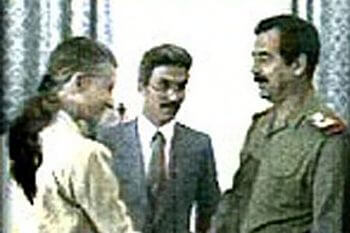
Like many Arab tyrants, Saddam Hussein was bellicose. He turned to rhetoric, and his oppression of his own people to make himself look tougher. To him, his screams against America And against America’s partner, Israel, was driven by wounded pride. But Israel also saw an opportunity to exploit Sept. 11, 2001, and to use it to take out Saddam Hussein who used his large country as a haven for Palestinian activists seeking to force Israel to recognize Palestine as a State.
The sad truth is that despite the incendiary rhetoric that Saddam Hussein used, he was a paper tiger. He could punish his own people and he did. He brutalized them. Tortured them. Imprisoned and murdered those who challenged him. But he was incapable of doing anything beyond his borders of any significance. And he lacked any expertise to build any serious weapons of mass destruction. There was no real chance for him to build a nuclear weapon, not more than any opportunity that any other nation on this planet has. Otherwise, if it were that easy, every nation today would have the nuclear bomb.
But for Israel, building a campaign against Saddam Hussein that focused on his fictionalized arsenal of nuclear weapons, helped Israel redirect the world away from the massive nuclear arsenal that Israel had already built with the help of Israeli spies like dual Israeli-American national Jonathan Pollard who worked in the American government and spied for Israel.
The invasion of Iraq was supposed to make the world a safer place. It was supposed to make America a safer place in a dangerous world.
But that didn’t happen. The threats against America are even greater, because of a critical flaw in the reasoning that Bush and Cheney used to hoodwink Americans into believing that Iraq was the doorway to the destruction of al-Qaeda.
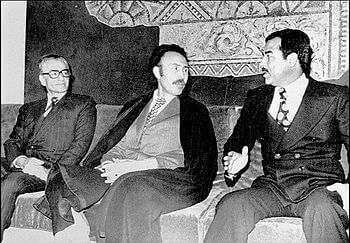
The flaw was simple, something everyone who knows anything about the Middle East knows and recognizes, as distressing as it is to admit. The truth is that the Middle East is a region of oppression. It always has been, from the day Western military generals walked in
after World War I and created the “Arab States” using a black Magic Markers to draw arbitrary national boundaries and deciding fates without considering the religious and ethnic makeup of the regions they so easily carved up.
The people of the Middle East have been oppressed so greatly that they were forced to hide their grievances in the one place where dictators were hesitant to go, in their religious centers and mosques. As a consequence, the Mosque and other Islamic centers became the only place where everyday Arabs and Muslims could express dissatisfaction without having their heads chopped off. Dissidents were arrested, denied legal representation and often disappeared without a trace. No one dared, not even family members to ask where the arrested and detained had been taken. In most cases, the dissidents were tortured and murdered.
So the people of the Middle East built up this internal anger that they could not vent properly. That anger was only aggravated by poor foreign policy decisions from places like America. It was America that toppled the elected Democracy in nearby Iran to install another dictator, the Shah of Iran. The Shah of Iran was the most brutal and murderous tyrant in the Middle East region.
American supported, funded and coddled the Shah, never once speaking out about his brutality, torture and civil rights abuses, nor about the massive killings of citizens that took place.
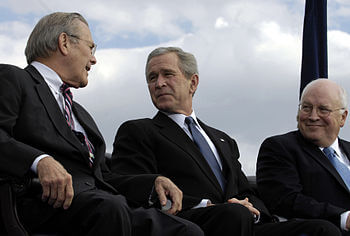
It was the same scenario on each Arab country. Most Arab countries had turned to the Soviet Union for support in their grievances against Israel and America, which funded and backed Israel. But when the Soviet Union broke up and the Berlin Wall collapsed in so-called Democratic protests, the Arab World turned to America, an opportunity to do what needed to be done, and what was right.
But instead, America stepped in and backed the Arab dictators. In Egypt. In Jordan. In the Gulf. And when a country’s people turned against those tyrants, America turned against the people.
Yet those tyrants were the hand that kept those people quiet, and minimized the resistance against America’s interests.
Ironically, Saddam Hussein, the blood thirsty tyrant who got his start working as an ally of the United States military in the war against the Ayatollahs who took over Iran, was the only thing standing between rising Islamic extremism, terrorism and the interests of the American people. Saddam Hussein kept his people in line using brutality and oppression. And like with the Shah, America tolerated those policies by their ally, Saddam Hussein, until Saddam Hussein’s ego made him believe he could be even bigger than the Shah of Iran, who was now hiding from his own people protected in an Arab country with the support of America.
And what prompted the revolution that threw the Shah out of office? The Shah ordered his troops to fire on civilians who were protesting against his policies, shifting the nation’s calendar from the Islamic Calendar to a Persian calendar. Hundreds of civilians were shot dead on the streets or Tehran without even a protest from America. The people of Iran saw that and they remembered.
The Shah fled to the United States for medical treatment, but eventually left for Egypt, where he died in 1980. And Iran became an American enemy.
Later, when Saddam Hussein tried to become the West’s new “Shah,” American responded. Iraq invaded an oil rich nation that was supplying America with oil, Kuwait.
When we took out Saddam Hussein, we unleashed a whirlwind of extremism and pent-up anger that was directed against America. The American-led embargo ended up punishing the everyday people of Iraq, Millions of children died from the embargo, and the people blamed America as much as they blamed Saddam Hussein. But they could denounce America. They could not dare to denounce Saddam Hussein.
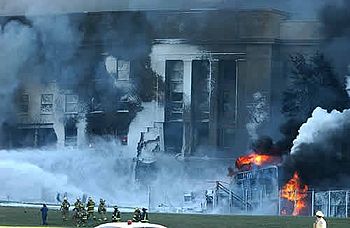
When America attacked Iraq n March 19, 2003, America turned on the switch to the expansion of Middle East extremism. Iraq, where extremists were in check, suddenly were free to fight America directly, no longer worried about Saddam Hussein’s oppression.
Today, Iraq is the base upon which the Islamic State (ISIS, or Daesh as the Arabs call it) was built and quickly spread to Syria, where another tyrant ruled, on and off with relations with the West.
Had the United States not invaded Iraq in 2003, we would have found and executed Osama Bin Laden long before President Obama finally managed to find him in May 2001, hiding out right under our noses in a huge home near a military base in Pakistan, one of America’s so-called “allies.”
We would have managed to destroy Saddam Hussein without sending one American soldier to his or her death in Iraq — where we lost the most American soldiers after the 2001 terrorist attack. We could have destroyed Saddam Hussein, and cultivated Democracy without being the brutal invaders driven by lies, false accusations and an agenda driven by wanting to protect Israel more than to bring Democracy to the Arab World.
Today, 14 years after the terrorist strike by Osama Bin Laden, America finds itself in a more threatening world with the Islamic State and extremist Muslims growing, not shrinking, in influence. The Arab World is in complete turmoil as millions of refugees crowd into neighboring countries fleeing the conflict in Syria, where the focus of Islamic State influence has grown even stronger.
America is less safe today not because of the brutality that has existed in the Middle East, but because of our exploitation of the suffering of the people of the Middle East.
The people in the Middle East have no one to turn to any more for help. They definitely will not turn to us. But they are clearly turning against us.


- Israelisnipers shooting and killing hospital workers in Gaza - December 11, 2023
- CAIR Condemns Israeli Executions of Wounded, Unarmed Palestinian in West Bank - December 11, 2023
- Arab and Muslim American voters face a “simple choice” between Biden’s inhumanity and Trump’s edgy politics - December 9, 2023














